Assure vs Ensure: What’s The Difference?
Today, we’re tackling two of those words that often get mixed up:
“Assure” and “Ensure.”
They sound pretty similar, right?
But…
They’ve got different roles to play in our sentences.
Short answer
“Assure” is all about making someone feel confident or certain about something. It’s like saying, “Don’t worry, I’ve got this.”
Meanwhile, “Ensure” is more about making sure something happens or is definite. It’s like double-checking everything is set for your plans.
So, ready to dive in and figure out how to use “Assure” and “Ensure” correctly?
Let’s break them down and clear up the confusion!
Keep reading.
Definition of Assure
Alright, let’s jump into “Assure.” This word is like a verbal pat on the back.
When you use “assure,” you’re trying to make someone feel confident or certain about something.
It’s like saying, “Hey, everything’s going to be okay.”
For instance, if your friend is nervous about a test, you might say,
“I assure you, you’re going to do great.”
Here, you’re giving them confidence and easing their worries. Or, imagine your team is unsure about winning a game. The coach might say,
“I assure you, we’ve practiced enough and we’re ready.”
This is the coach’s way of boosting the team’s confidence.
“Assure” is typically used in situations where there’s doubt or worry, and you want to give someone confidence or peace of mind. It’s about removing doubts and reinforcing belief in something.
Definition of Ensure
Now, let’s talk about “Ensure.”
This word is like a promise that something will definitely happen or that certain conditions will be met. When you use “ensure,” you’re making sure something is going to take place or that something is arranged.
For example, if you’re planning a camping trip, you might say,
“I’ll ensure we have all the supplies.”
Here, you’re making sure everything needed for the trip is ready. Or, a teacher might say,
“I need to ensure all students understand the lesson before we move on.”
This means the teacher wants to make certain that every student has grasped the topic.
“Ensure” is often used in contexts where there’s a need for certainty or a guarantee that things will go as planned. It’s about taking steps to make sure an outcome is secured.
Etymology and Historical Usage
Diving into the etymology and historical usage of “assure” and “ensure” can give us a clearer understanding of their current meanings and how they’ve come to be used.
Assure:
Origin: “Assure” comes from the Old French word “asseurer,” based on Latin “ad-” (to) + “securus” (safe). Its original sense revolved around making someone confident by promising or giving security.
Historical Usage: Historically, “assure” was used in the context of making someone sure or confident, particularly in legal contexts, as in assuring property or rights. Over time, its use expanded beyond legalities, coming to mean giving confidence or certainty in a more general sense.
Ensure:
Origin: “Ensure” also originates from Old French, “enseurer,” which meant to make sure. The root “securus” (safe) is again a part of its etymology, shared with “assure.”
Historical Usage: Initially, “ensure” was used in the sense of making something certain or safe. This usage has persisted, and the word has evolved to emphasize the action of making sure or guaranteeing something.
Comparative Analysis
When comparing “assure” and “ensure,” it’s important to grasp the subtle differences in their connotations and the contexts in which they’re typically used.
“Assure”
- Connotations: “Assure” is about giving confidence or relieving doubts. It’s more about the emotional aspect of making someone feel certain or reassured about something.
- Usage: You use “assure” when you’re addressing a person’s feelings or beliefs, typically in personal interactions.
- Example: “I assure you that everything will work out fine.” This sentence aims to comfort or reassure the person about the outcome.
“Ensure”
- Connotations: “Ensure” is focused on making certain that something happens or is done. It’s about taking steps or actions to guarantee a specific outcome or condition.
- Usage: “Ensure” is used in contexts where there’s a need to make something certain, often involving practical steps or measures.
- Example: “We must ensure all the doors are locked before leaving.” This sentence focuses on the action needed to guarantee the security of the place.
Side-by-Side Comparison:
| Aspect | Assure | Ensure |
| Focus | Giving confidence, relieving doubts | Taking steps to make something certain |
| Context | Personal interactions, addressing feelings or beliefs | Practical measures, guaranteeing outcomes |
| Example | “I assure you, your secret is safe with me.” | “We need to ensure all safety protocols are followed.” |
Common Mistakes and Misuses
Common Errors
Misusing “Assure” for “Ensure”: A frequent mistake is using “assure” when “ensure” is intended, especially in contexts involving guaranteeing outcomes. For instance, saying “I assure all the windows are locked” instead of “I ensure all the windows are locked.”
Misusing “Ensure” for “Assure”: Conversely, using “ensure” in place of “assure” happens, particularly when the intent is to comfort or instill confidence in someone. For example, “I want to ensure you that you’re doing a great job” should be “I want to assure you that you’re doing a great job.”
Comparison Table
| Feature | Assure | Ensure |
| Meaning | To make someone confident or certain about something | To make certain or guarantee that something happens |
| Usage | Used in personal interactions, addressing feelings or beliefs | Used in practical contexts, ensuring specific outcomes or conditions |
| Example | “I assure you, the plan is foolproof.” (Giving confidence about the plan) | “We must ensure all procedures are followed.” (Guaranteeing that procedures are followed) |
| Mnemonic | A+Sure (reAssurance) | E+Sure (Insurance) |
Extra Tip:
- When you’re trying to comfort someone or address their doubts, use “Assure.” When you’re focused on making certain that an action is carried out or a condition is met, opt for “Ensure.”
Usage in Literature and Media
In literature, movies, and other media, “Assure” and “Ensure” are used in different contexts, each bringing its unique flavor to the narrative or dialogue.
“Assure”:
In Literature: Writers often use “assure” to depict a character providing comfort or confidence. For example, in a novel, a character might say,
“I assure you, everything will turn out fine,”
to comfort another character who’s worried about an outcome.
In Movies/Media: In films or TV shows, a character might use “assure” to convey confidence or remove doubt. A line like,
“I assure you, we have the situation under control,”
is commonly used in scenes where a character is trying to instill confidence in others.
“Ensure”:
In Literature: “Ensure” is typically used in scenarios where a character is taking steps to guarantee an outcome. For instance, a detective in a mystery novel might say,
“I must ensure all evidence is collected properly,”
emphasizing the need to secure a thorough investigation.
In Movies/Media: In a more action-oriented scene, a character might use “ensure” to express the need for certainty, like saying,
“Ensure all the exits are blocked,”
which indicates a need for a guaranteed action to take place.
Examples in Use:
Assure (Comfort/Confidence):
“She assured him that his secrets were safe with her.”
(Romantic Drama)
Ensure (Guarantee/Action):
“The general gave orders to ensure the plan was executed without fail.”
(Military Action Film)
These examples show how “Assure” is used in contexts where emotional support, comfort, or confidence is needed, while “Ensure” is more about taking practical steps to guarantee that something happens. Understanding these nuances helps in appreciating the choice of words in different storytelling contexts and can enhance the depth of understanding in both written and visual narratives.
Resources
For readers interested in delving deeper into the complexities of language and usage, there are many insightful books available. These books cover a wide range of topics related to English language, grammar, and effective communication. Here’s a list of some highly recommended titles:
“Eats, Shoots & Leaves: The Zero Tolerance Approach to Punctuation” by Lynne Truss.
This book offers a humorous look at the importance of punctuation in the English language, making it both informative and entertaining.
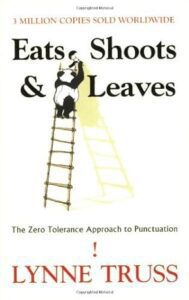
“The Elements of Style” by William Strunk Jr. and E.B. White.
A classic guide to writing in English, this book is essential for anyone who wants to improve their writing skills, offering clear rules about grammar, composition, and style.
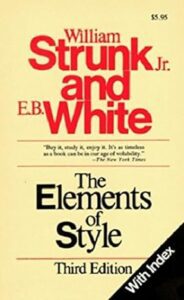
“Word Power Made Easy” by Norman Lewis.
An excellent resource for building a strong vocabulary, this book also enhances understanding of English usage, origins, and correct application of words.

“The Mother Tongue – English And How It Got That Way” by Bill Bryson.
Bryson explores the history, oddities, and evolution of the English language in an engaging and accessible way.
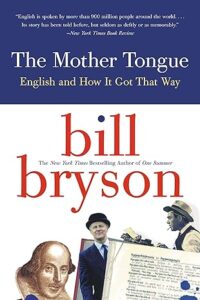
“Between You & Me: Confessions of a Comma Queen” by Mary Norris.
Written by a longtime New Yorker copy editor, this book provides insights into the nuances of language and the art of editing.
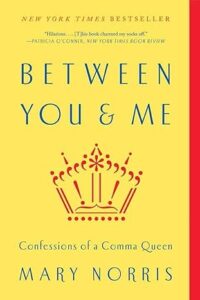
“Dreyer’s English: An Utterly Correct Guide to Clarity and Style” by Benjamin Dreyer.
This modern guide offers practical advice on how to write clearly and with style, covering everything from grammar rules to style preferences.

“On Writing Well: The Classic Guide to Writing Nonfiction” by William Zinsser.
This book provides valuable tips for writing nonfiction, emphasizing clarity, simplicity, and efficiency in writing.
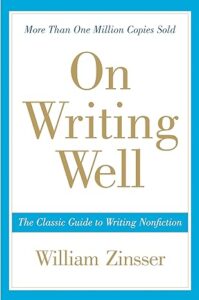
“The Sense of Style: The Thinking Person’s Guide to Writing in the 21st Century” by Steven Pinker.
Pinker uses insights from linguistics and cognitive science to explain what makes certain writing styles effective and engaging.
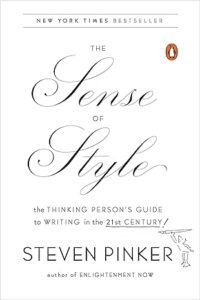
Each of these books offers valuable perspectives on the English language, from its history and evolution to practical tips on usage and style. They are excellent resources for anyone looking to deepen their knowledge of English, whether for personal growth, academic purposes, or simply out of a love for the language.
